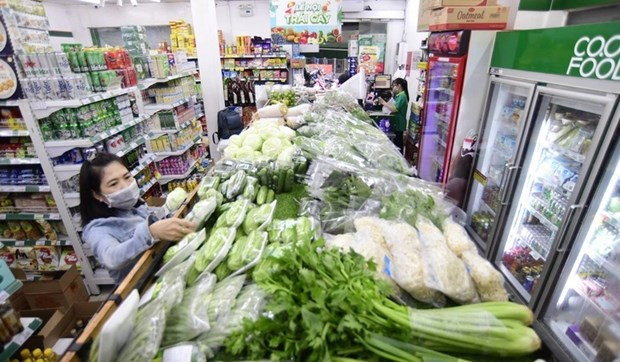
Domestic retailers have many advantages to win customers thanks to attractive price policies and deep understanding of customers, and improved post-sales services.
Last week, the Ho Chi Minh City Union of Trading Co-operatives (Saigon Co.op) simultaneously opened four new Co.op Food stores in three cities across the country - Ho Chi Minh City, Bien Hoa, and Thanh Hoa.
In July only, 13 Co.op Food stores opened, bringing its total nationwide to 571.
Along with the Co.opmart supermarket system, Co.opXtra hypermarket and other retail brands under Saigon Co.op, Co.op Food are also looking for new premises not only in inner city areas but also outskirts.
Co.opmart operations director and marketing director of Saigon Co.op Nguyen Ngoc Thang said that the network expansion aims to diversify the ecosystem and is a foundation for it to develop e-commerce and complete the structure “online to offline” and “offline to online” for more efficient operation.
Currently, Saigon Co.op is focusing on accelerating the development of convenience store chains such as Co.op Food, Co.op Smile, and Cheers in new residential areas to access more customer groups.
In the context of economic difficulties, customers tend to tighten their purse string, and the development of modern distribution channels shows the seller's commitment to offerings services and Vietnamese retailers’ internal strength to maintain and develop the business.
That also reflects the potential of Vietnam's retail market which has room to develop further. On the other hand, in July, headline inflation only increased by 2.1% year-on-year, much lower than the 4.5% cap set by the State Bank of Vietnam as energy inflation continued to fall. Vietnam has all the favourable factors for growth in the third and fourth quarters of 2023.
This is also an opportunity for domestic retailers to boost customer care services, said Nguyen Anh Duc, chairman of the Vietnam Retail Association.
Not only diversifying retail models to serve all customer segments, Saigon Co.op's systems also show flexibility and adaptability in operation to optimise the supply of goods and meet customer requirements in each area.
Small but highly "localised" supermarkets are a trend of the modern retail market, where customers come for the closeness and convenience like they used to be served at grocery stores.
Especially, since the outbreak of the COVID-19 pandemic, customers' shopping habits and behaviours have also changed. They tend to choose stores that are close to their home, focusing on essential products for daily life.
At the Co.op Food system, after a period of opening, each Co.op Food store will build a database of customers with the frequency of shopping and the average value of the invoice. Based on the characteristics of each region, stores will have adjustments to meet the needs and habits of consumers.
Thang said that Vietnam's retail market with a size of 100 million people has some segments with a high degree of concentration, so retailers must have the fastest response and best concretisation to meet new consumer trends.
Nguyen Nguyen Phuong, deputy director of the Ho Chi Minh City Department of Industry and Trade, said that although purchasing power still tends to decrease, consumers are willing to shop if retailers have a solution to stimulate demand./. VNA